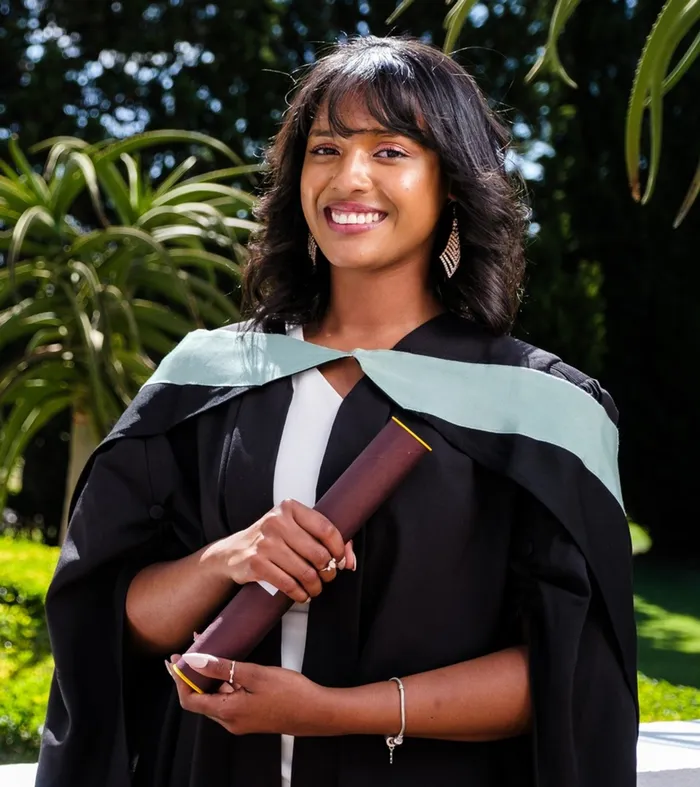Degree of difficulty: Student beats autism and dyslexia to vang her graad

GRADUATION DAY: Firdous Sulaiman. Picture supplied
A Maties graduate is ending her year on a high note after overcoming a mountain of challenges during her studies.
It took Firdous Sulaiman, 25, from Kraaifontein seven years to complete her studies and receive her degree in Speech, Language and Hearing Therapy.
During her studies the now-qualified speech therapist was involved in a car crash and diagnosed with dyslexia and autism.
This made her work even harder and she received the Rector’s award, ending her final year as one of the top students in her class.
Firdous says learning about her disabilities and overcoming her own mental health issues was a triumphant conclusion to years of struggling.
She explains: “For years I knew something was different, because I struggled differently than others, emotionally as well, but I never knew it would be this [her condition], until 2020 when I was involved in a car crash and ended up seeing a therapist who picked up on some of the symptoms.

“From primary school until then I was struggling but always hid it away, so when I received the diagnosis I felt like a weight was lifted off from my shoulders. I had an answer to all the years of questions about why I felt so different.”
Firdous says thankfully, the university accommodated her, allowing extra time when she wrote exams and also helped her with therapy.
She adds: “My story is one of hope. I always say, you don’t get dumb children, only people and a system that fails you.
“Being autistic and dyslexic does not make you less of a person, in fact, it makes you a master of your own craft, because often we have strengths that other ‘normal considered people’ do not have.
“I say look at your strengths, and master it, the most important thing is forgiving yourself for being hard on yourself, that’s the first step, look at [Albert] Einstein for instance and start believing in yourself.”
Firdous will start her career as a child speech therapist in Robertson on 2 January 2024 and can’t wait to get started.
She adds of the new chapter in her life: “I find it even more fitting because I will be the first point of contact when recognising these types of disorders and I will be able to help not only the child but those around them, to help understand that these kids are normal and just need to be accepted as well.”